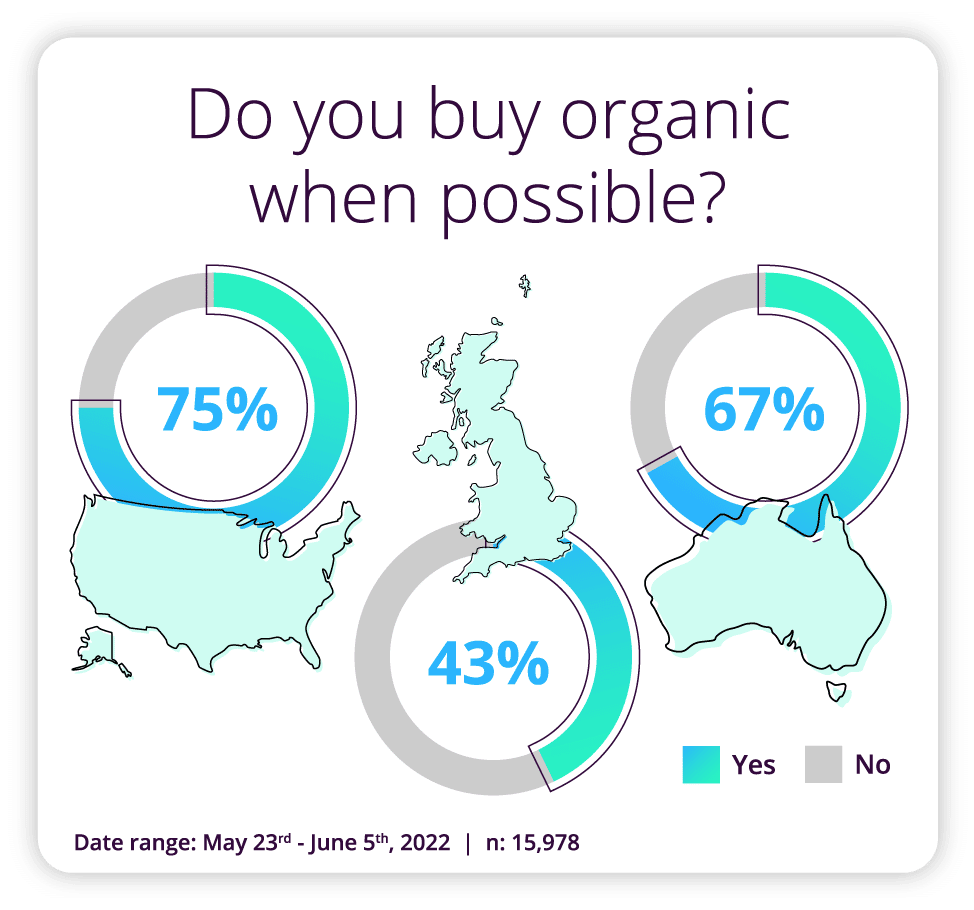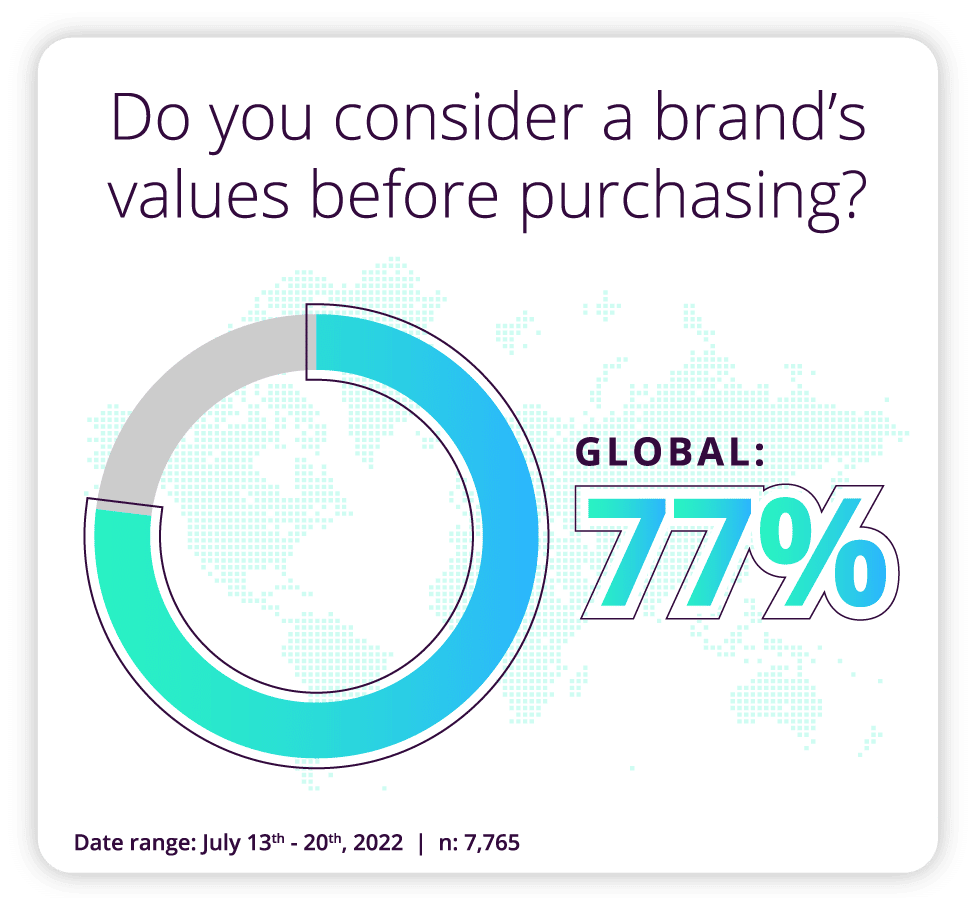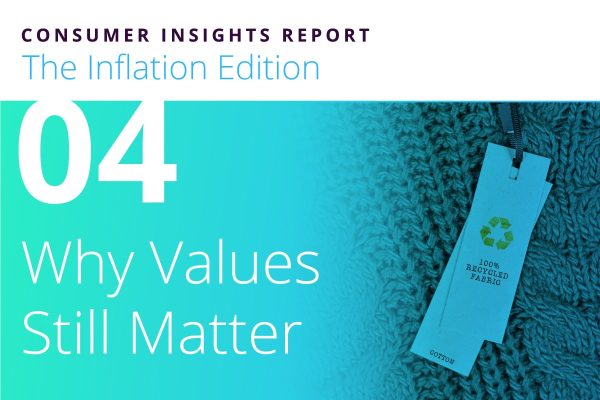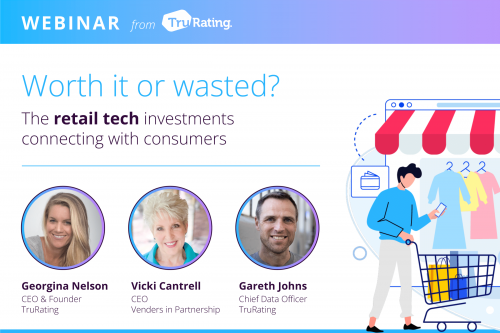In the final installment of our latest Consumer Insights Report, we take a look at a key, if often undersung consideration – the long-term beneficial impacts of understanding and acting on the ethical concerns of your consumer base (in case you missed them Parts 1, 2, and 3 are all still available).
While the headlines continue to be dominated by a focus on shrinking consumer confidence in the face of price rises, it is perhaps more important than ever to remember that pricing is just one of many considerations that influences consumer psychology.
The long-term impact of green operations and ethically sourced products continues to be a driving force – and in spite of the economic turbulence – this is not something that we as consumers have suddenly put to one side.
As always we believe that reliable consumer data is the key to getting to the truth – if you have enjoyed this series we’d love to send you more helpful information, download the full report and look forward to enjoy an on-going set of insights sent straight to your inbox.
The Data:



The Story:
For further evidence that a ‘race-to-the-bottom’ pricing strategy is simply out of step with the modern consumer mindset, TruRating data reveals that not only are consumers more thoughtful about how they spend their money, but increasingly they want to buy from retailers that share their values also.
Data collected in the Summer of ‘21, when a majority of stores where fully operative once more after the long COVID shutdowns, showed that 77% of consumers are more loyal to retailers that share their values. A far higher proportion compared to those who claimed they were loyal to retailers who offered a loyalty program alone.
Loyalty in the modern age is driven by a complex set of drivers – economic, aesthetic and moral – you have to deliver on them all.
It might seem plausible that the ethical concerns of shoppers would become less important during times of economic hardship, but our data says this is not the case.
While customers are more willing to shop around for a deal and think twice before buying name brands – with many adopting private brand labels and the use of shopping lists – this does not mean that they are willing to sacrifice a commitment to buy ethically wherever possible.
75% of US consumers will still look to buy organic or from ecologically friendly suppliers whenever possible – even in times of inflation.
For retailers considering whether an investment in their own green initiatives is important or not in the current climate, the answer is an emphatic yes.
While this may be reflected in product range or where you source your goods from, it can also be an investment in operational activities that ultimately help decrease your green footprint and increase efficiencies. If you are savvy enough to be investing in such activities, make sure that you communicate this to your customer base.
Those who are able to take a longer view of how to both play to their customers’ desires for a better world while future-proofing their own business are most likely to see their forward thinking rewarded in the long run.
Key Takeaways:
- Customers have not lost their commitment to shop ethically even with inflation
- Understanding and sharing your customers values is the best way to win long term loyalty
- Provenance of goods is just as important as price
Retailer Tip:
Learn to understand the values of your customer base and connect the shopping experience to those values in order to play the long game. If your customers value sustainability, embed it into the in–person and digital experience, incorporate it into value propositions, make it a part of your packaging and highlight it in promotional efforts.
- Are you communicating clear brand values that resonate with your key audience?
- Do you have any metrics in place to measure emotional loyalty amongst your customers?
- Could an operational overhaul that improved emissions and efficiencies be beneficial to your business in the long term?














